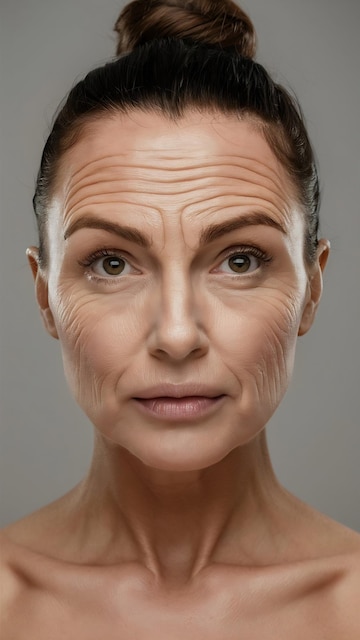Pregnancy brings a host of changes to a woman’s body, including shifts in skin texture, pigmentation, and elasticity. As a result, many expectant mothers seek solutions to manage their skin concerns, including wrinkles. However, the question arises: Are wrinkle smoothing treatments safe during pregnancy?Let's explore the Wrinkle Smoothing in Dubai treatment.
What Are Wrinkle Smoothing Treatments?
Wrinkle smoothing treatments aim to reduce the appearance of fine lines and wrinkles, typically using injectable procedures like Botox or dermal fillers. These treatments work by relaxing the muscles beneath the skin or adding volume to the skin to smooth out wrinkles.
Botox for Wrinkle Smoothing
Botox is one of the most popular wrinkle-smoothing treatments. It works by temporarily paralyzing the facial muscles that cause wrinkles, particularly around the forehead, eyes, and mouth. While Botox is a non-surgical procedure, it’s important to consider its safety during pregnancy.
Dermal Fillers
Dermal fillers, such as hyaluronic acid-based products, are used to restore lost volume in the face, which can help reduce the appearance of wrinkles and fine lines. These fillers are injected into the skin to plump areas that have lost volume due to aging or other factors.
Is It Safe to Get Wrinkle Smoothing Treatments While Pregnant?
Currently, there is limited research regarding the safety of Botox and dermal fillers during pregnancy. The general recommendation from health professionals is to avoid these treatments during pregnancy. While there is no direct evidence suggesting that wrinkle smoothing treatments cause harm to the developing fetus, the lack of studies on the subject makes it best to err on the side of caution.
Why It’s Best to Avoid These Treatments During Pregnancy
- Lack of Research: As mentioned, there is no extensive research to confirm the safety of Botox or dermal fillers during pregnancy.
- Hormonal Changes: Pregnancy hormones can alter the way your body responds to treatments, which could increase the likelihood of side effects or complications.
- Unpredictable Results: Pregnancy can cause changes in your skin, including swelling, increased sensitivity, and altered skin texture. These changes may affect the outcomes of wrinkle treatments, potentially leading to less-than-ideal results.
Benefits
Opting to avoid wrinkle smoothing treatments during pregnancy has several benefits:
- Peace of Mind: Choosing not to undergo these treatments during pregnancy ensures that you are not putting your baby at risk, even if the risks are not fully understood.
- Better Skin Care Focus: During pregnancy, your skin may become more sensitive. Focusing on pregnancy-safe skincare products and treatments is a great alternative to maintain healthy, glowing skin.
Safe Alternatives for Skin Care During Pregnancy
While wrinkle smoothing treatments may not be suitable, there are plenty of safe alternatives you can explore. Focus on hydrating your skin, using gentle exfoliants, and applying sunscreen regularly. Consulting with a dermatologist or healthcare provider about pregnancy-safe skincare products is a great way to enhance your skin's health without risk.
FAQs
1. Can Botox be used during pregnancy?
It is not recommended to use Botox during pregnancy due to the lack of conclusive safety data.
2. Are there any risks with dermal fillers during pregnancy?
The safety of dermal fillers during pregnancy has not been well-studied, so it’s best to avoid them.
3. Can pregnancy cause wrinkles?
Pregnancy may alter your skin's texture, and hormonal changes can make wrinkles more noticeable.
4. What can I use for wrinkles while pregnant?
Focus on safe alternatives like moisturizing, using sunscreen, and gentle exfoliation during pregnancy.
5. Is it safe to get wrinkle treatments while breastfeeding?
It’s best to consult your healthcare provider before undergoing wrinkle treatments while breastfeeding, as some ingredients may not be recommended.
Conclusion
Although wrinkle-smoothing treatments like Botox and dermal fillers can be effective, it is advisable to avoid these procedures during pregnancy due to the lack of sufficient safety data. Opting for natural skincare methods and seeking guidance from your healthcare provider is a safer and wiser choice to maintain your skin's health during this time. Your skin will undergo natural changes, and it’s best to focus on safe and gentle treatments that prioritize your well-being and that of your baby.





Comments